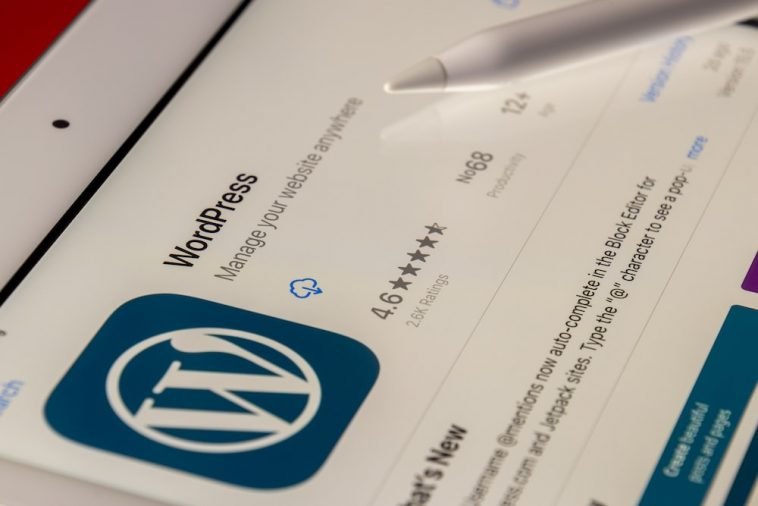Introduction.
Are you thinking about stepping into the world of freelance WordPress development? You’re in good company!
More and more people are choosing to go the freelance route, and WordPress is one of the best platforms to build a career on. But how exactly do you get started, and what does it take to actually succeed?
Let’s face it—becoming a successful freelance WordPress developer isn’t something that happens overnight. It’s a mix of technical skills, good business practices, and a lot of dedication.
But don’t worry—I’ll break it down for you, step by step, to help you understand what you need to do and what you need to learn.
In this article, I’m going to walk you through the process of becoming a freelance WordPress developer—from the very basics of WordPress, all the way to building a steady stream of clients and making your freelance business thrive.
Along the way, I’ll share tips and insights to help you stay on track and avoid some common mistakes that can trip up beginners.
So, let’s get into it!
How Do I Become a Freelance WordPress Developer and Succeed?
1. Master WordPress Fundamentals
Before you can start taking on freelance clients, you need to understand WordPress inside and out. At its core, WordPress is a content management system (CMS) that powers over 40% of websites on the internet today.
That’s right—more than 40% of all websites use WordPress, making it a highly sought-after skill in the freelance world.
The first step is getting comfortable with the basics:
- Installing WordPress: Learn how to install WordPress on a local server and a live server.
- Themes & Plugins: Understand how to work with themes and plugins, which are essential to customizing a website.
- Basic HTML, CSS, and PHP: These are the building blocks of WordPress websites. You don’t need to be an expert in them right away, but you should understand the basics to modify themes and plugins when necessary.
- WordPress Dashboard: Get familiar with the WordPress dashboard, as it’s where you’ll spend a lot of your time managing websites.
Once you have a good grasp of the platform, start experimenting. Build a personal website or a portfolio site to practice and show off your skills. This can also be a great way to attract potential clients later on.
2. Build Your Skill Set
As a WordPress developer, you need more than just basic knowledge. You need to deepen your skill set and get familiar with advanced topics. This will make you stand out in the competitive freelance market.
Here are some things you should focus on:
- Advanced WordPress Development: Learn how to create custom themes and plugins from scratch. This is where the real money is because clients often need custom solutions for their websites.
- JavaScript and jQuery: These languages will help you enhance the interactivity and functionality of your WordPress sites.
- Responsive Design: With mobile traffic surpassing desktop, it’s crucial that every site you build looks great on phones and tablets. Master responsive design techniques using CSS media queries.
- Website Security: Understand how to secure WordPress sites from hackers. Clients will trust you more if they know you can protect their websites from common threats.
- Search Engine Optimization (SEO): While WordPress offers some built-in SEO features, learning the ins and outs of SEO will help you optimize websites for search engines and attract more organic traffic.
As you progress, keep up with the latest trends in WordPress development. WordPress is constantly evolving, and staying current will help you stay ahead of the competition.
3. Create a Portfolio
Now that you have some experience and skills, it’s time to start building your portfolio. Potential clients want to see what you can do, so having a solid portfolio is essential.
Here’s what you need:
- Personal Website: Your portfolio site should showcase your skills and provide potential clients with an easy way to get in touch with you. It’s the first thing people will check when considering hiring you.
- Sample Projects: Build a few sample projects that show off your WordPress development skills. If you don’t have any clients yet, create your own projects or volunteer to build websites for friends or local businesses.
- Showcase Your Skills: List all the services you offer, such as theme customization, plugin development, or website maintenance. Include specific examples of your work, highlighting how you’ve solved problems for your clients.
- Client Testimonials: If you’ve worked with anyone before, ask for testimonials. Positive feedback from clients helps build trust and credibility.
Don’t worry if you’re just starting out and don’t have a ton of work to show yet. As you gain more experience, your portfolio will grow. Just make sure to keep it up to date and professional-looking.
4. Find Your Niche
When you’re just starting out, it’s tempting to take any job that comes your way. But in the long run, finding a niche can make you stand out and attract clients who are looking for your specific expertise.
Think about what kind of websites you enjoy building. Do you like e-commerce? Focus on WooCommerce development.
Do you have a passion for design? Maybe specialize in creating custom themes. Or, if you’re really into website speed and performance, you could offer services that help businesses optimize their sites.
By focusing on a niche, you’ll attract clients who need your specific skills, and you’ll be able to charge higher rates because you’re an expert in that area.
5. Set Your Rates and Manage Your Business
One of the biggest challenges of being a freelancer is figuring out how much to charge. Setting your rates too low can lead to burnout, while charging too high can scare potential clients away.
Here are some tips for setting your rates:
- Hourly vs. Project-Based Rates: Many WordPress developers charge by the hour, while others charge by the project. Consider how much time a project will take, and decide which pricing model works best for you.
- Research Industry Rates: Check out websites like Glassdoor or Upwork to get an idea of what other WordPress developers are charging in your region.
- Don’t Undervalue Yourself: As you gain experience, increase your rates to reflect your expertise. Don’t be afraid to charge what you’re worth.
- Create Contracts: Always use contracts to outline the scope of work, payment terms, and deadlines. Contracts protect both you and your client.
It’s also important to keep track of your finances, taxes, and invoicing. You can use tools like QuickBooks or FreshBooks to help manage the business side of things.
6. Market Yourself and Find Clients
Now that you’re ready to start working with clients, you need to find them! Here are some ways to market yourself:
- Freelance Marketplaces: Websites like Upwork, Fiverr, and Freelancer are great places to find clients, especially when you’re just starting out.
- Networking: Join WordPress-related communities (both online and offline) to connect with potential clients. Attend local meetups or WordCamps if possible.
- Social Media: Use platforms like LinkedIn, Twitter, and Instagram to showcase your work, engage with the community, and attract new clients.
- Cold Outreach: If you have a specific target audience, consider reaching out to businesses directly via email or social media to offer your services.
Finding clients can take time, so be patient and keep working on your marketing efforts. The more you put yourself out there, the more likely you are to land your next project.
7. Keep Learning and Growing
The WordPress ecosystem is always evolving, so the best freelancers are those who are constantly learning.
Whether it’s new coding languages, new tools, or even just improving your communication skills, always strive to grow and improve.
Consider taking courses or certifications to improve your knowledge. Websites like Codecademy, Udemy, and LinkedIn Learning offer great resources for WordPress developers.
Conclusion
Becoming a successful freelance WordPress developer takes time, effort, and the right skills. But if you’re dedicated and willing to put in the work, it can be incredibly rewarding.
You’ll have the freedom to work on projects you’re passionate about, set your own rates, and build a business that suits your lifestyle.
So, are you ready to dive in and take the leap into the world of freelance WordPress development?





GIPHY App Key not set. Please check settings